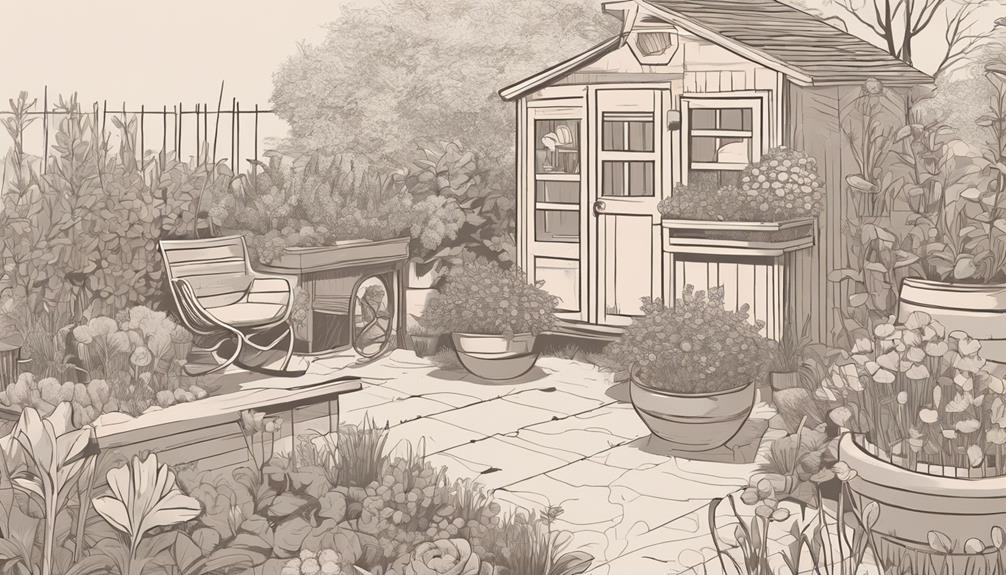See All: Backyard Farming
Free Backyard Farming Webinar…
You can grow food! This free webinar is for people who want the fastest and easiest ways to produce healthy and delicious vegetables, eggs, and meat. Because you know that growing your own food is like printing your own money…
Click Here To Watch The Free Webinar Now!
“I have a small backyard and I’m wondering if I can still start a backyard farm. I live in Portland, Oregon, and I’m looking to grow some vegetables and maybe have a couple of chickens. How feasible is this with limited space and what should I consider to make the most out of my small area?” Thanks, Sarah, Portland, USA.
Can I Farm In My Backyard If It’s Small?
Absolutely, Sarah! Farming in a small backyard is not only feasible but can also be quite rewarding. With a bit of creativity and proper planning, you can maximize your limited space and create a thriving backyard farm. Let’s go through the steps and considerations to help you get started.
Assess Your Space
First things first, evaluate your backyard space to understand its dimensions and characteristics. Here’s what to consider:
- Size: Measure the total available space you have.
- Sunlight: Observe which areas receive the most sunlight; most vegetables need at least 6-8 hours of direct sun per day.
- Soil Quality: Test your soil for its pH level and nutrient content. You might need to amend it to suit the plants you want to grow.
Planning Your Garden Layout
With limited space, a well-thought-out layout is crucial. Here are some layouts that work great for small spaces:
Vertical Gardening
Using vertical space allows you to grow more without consuming ground area.
- Trellises and Arbors: Ideal for vining plants like tomatoes, cucumbers, and peas.
- Stacked Planters: Perfect for herbs and smaller plants.
- Wall Planters: Great for leafy greens like lettuce and spinach.
Container Gardening
Containers are versatile and movable, making them excellent for small spaces.
- Pots and Raised Beds: Use various sizes for different plants.
- Window Boxes: Perfect for herbs and smaller plants.
- Hanging Baskets: Good for strawberries and small cherry tomatoes.
Square Foot Gardening
This method involves dividing your garden into square-foot sections, optimizing every inch of space.
- Grid System: Organize plants based on their size and growth habits.
- High-Density Planting: Maximizes yield per square foot.
Choosing the Right Plants
Opt for high-yield, space-efficient plants that thrive in small areas.
Vegetables
The following vegetables are excellent choices for small backyard farms:
- Tomatoes: Grown vertically, they save space and offer high yields.
- Lettuce and Spinach: These leafy greens grow quickly and don’t require much space.
- Peppers: Compact plants that produce a good amount of fruit.
- Radishes: Quick to grow and don’t take much room.
Herbs
Herbs are perfect for small spaces since they can be grown in containers or planters:
- Mint: Grows rapidly, ideal for containers.
- Basil: Great for pots and adds wonderful aroma to your garden.
- Cilantro: Easy to grow in small spaces.
Fruits
Even with a small space, you can still grow some fruits:
- Strawberries: Perfect for hanging baskets and containers.
- Blueberries: Dwarf varieties grow well in pots.
Raising Small Livestock
Adding a couple of chickens to your backyard farm can be highly beneficial. Here’s what to keep in mind:
- Space Requirements: Chickens need a coop and some outdoor space. For a small backyard, consider bantam breeds which are smaller.
- Local Regulations: Check with Portland’s local ordinances to ensure you’re allowed to keep chickens.
- Health and Care: Chickens require daily feeding, and their coop needs regular cleaning to prevent diseases.
Sustainability Practices
Practicing sustainability in your backyard farm can make your efforts more rewarding:
Composting
Compost your kitchen scraps and garden waste to create nutrient-rich soil.
- Compost Bin: A small bin in a corner can turn waste into valuable compost.
- Vermicomposting: Use worms to create compost quickly and efficiently.
Water Conservation
Efficient water usage is essential for a small backyard farm:
- Drip Irrigation: Directly waters the base of the plants, reducing water wastage.
- Rain Barrels: Collect rainwater to use for irrigation.
- Mulching: Helps retain soil moisture and keeps weeds at bay.
Protection from Pests
Keep your small farm healthy and pest-free:
- Companion Planting: Plant herbs and flowers that repel pests, such as marigolds or basil.
- Natural Remedies: Use natural pesticides like neem oil or a soap spray.
- Physical Barriers: Install netting or fencing to protect plants from larger pests like birds and squirrels.
Enjoying the Harvest
After all your hard work, you get to enjoy the fruits of your labor:
- Harvest Regularly: Pick vegetables at their peak to encourage further growth.
- Preserve Excess Produce: Consider canning, pickling, or freezing surplus produce.
- Share with Neighbors: Sharing your bounty fosters community bonds and reduces waste.
Final Thoughts…
Sarah, your small backyard can definitely transform into a productive and beautiful farm with the right planning and care. Utilize vertical space, choose appropriate plants, and consider adding a couple of chickens for a well-rounded backyard farm. Remember that each small step you take brings you closer to a sustainable and rewarding gardening experience. Thanks for your question and happy farming in Portland!
Return To: Backyard Farming
Free Backyard Farming Webinar…
Marjory Wildcraft: For 20+ years, Marjory has been a leader in survival & preparedness and wants to show you how to grow food in your backyard farm. This free webinar is for people who want the fastest and easiest ways to produce healthy and delicious vegetables, eggs, and meat. Because you know that growing your own food is like printing your own money…

